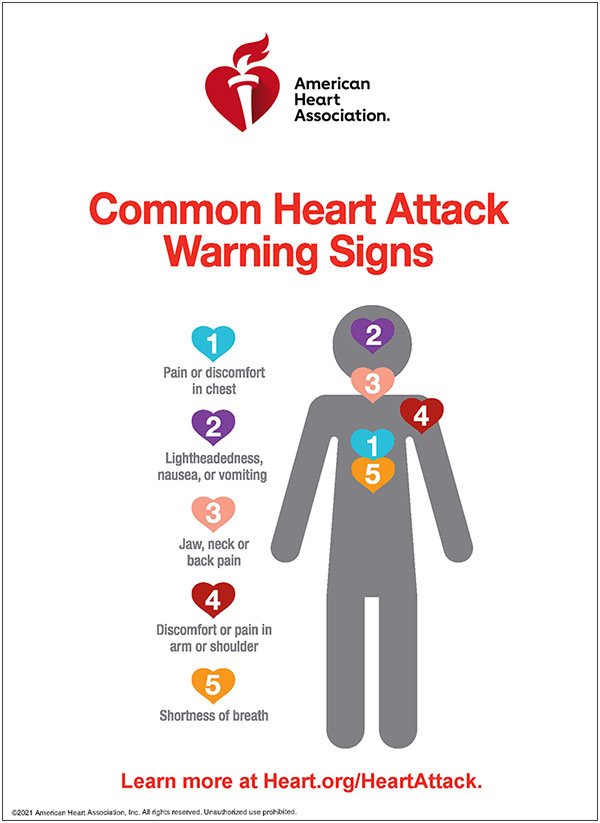Every February is American Heart Month, an opportunity to raise awareness about how to manage and improve cardiovascular health. In 2024, we celebrate 100 years of community service by the American Heart Association, whose mission is …
“To be a relentless force for a world of longer, healthier lives.”
Given heart disease prevalence, most of us are directly or indirectly impacted. The estimated frequency of someone in the U.S. having a heart attack is every 40 seconds.
Gaining baseline knowledge is a Smart Start in taking care of your heart. With a wealth of educational materials readily available, learning more is advised. On purpose, discover reputable resources, determine vital questions and Ask Your Doctor.
Here’s a helpful infographic from the American Heart Association.

You should Hear the Facts about how hearing loss relates to heart disease. As previously discussed, Did you know some types of hearing loss should be considered risk factors which can be systemically associated with heart disease and strokes?
Research indicates your inner ear’s sensitivity to blood flow, as well as vessel trauma, may enable hearing loss to be an early indicator of and screening test for heart problems. While few are in the know, most are surprised to realize your ears can be a “window to your heart.”
Extensive research suggests long-term exposure to loud noise is associated with Cardiovascular Disease (CVD) outcomes in occupational settings. One study reported “workers who were chronically exposed to loud noise in the workplace had a twofold to threefold increase in the presence of coronary heart disease (CHD) compared with those not exposed to loud occupational noise.”1
Indications are that those with bilateral and high-frequency hearing loss are about twice as likely to have Coronary Heart Disease (CHD), being approximately 4X riskier for persons currently or previously exposed to very noisy workplaces.
Do you have heart disease or a family history which increases heart disease risk?
Please see us for periodic evaluations to accurately assess your type and degree of hearing loss. In close coordination with other healthcare providers, we will ensure you are aware of hearing-related cardiovascular risk factors.
1 Gan WQ, Moline J, Kim H, et al. Occup Environ Med 2016;73:34–41.







